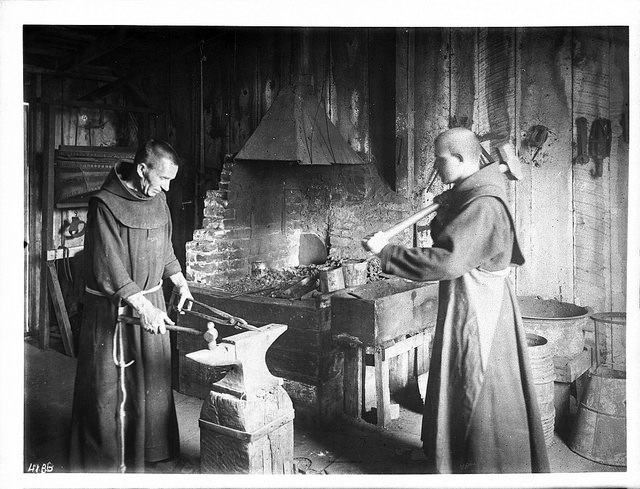A friend of mine, when she was a little girl, was faced with a difficult decision. Her class in school was having Career Day. Even though she was quite young, she needed to choose between two possible career paths. For her, it was a choice between becoming a ballerina or becoming a saint.
My friend thought carefully about her dilemma, and finally decided, for that day, to dress as a ballerina. It came down to the fact that she could wear her ballet tutu, but did own not a suitable work habit. She eventually found a career path which combines the strengths of a ballerina and a saint.
Her predicament reminds me of quite a few people I know. We want to be good people in our everyday lives, we want to put our values into practice. When faced with making practical decisions, we are just not sure we have the habits we need to be spiritual. We are not convinced we have the habits we need to call ourselves contemplative.
There are two kinds of monastic habits.
The monks I know wear blue jeans when they are doing manual labor. They may wear sweaters and hats when they work in their gardens. When we sit together chanting in the chapel at the hermitage, they wear white habits.
In addition to what they wear in chapel, the monks I know develop monastic habits of behavior.
Some monastic habits are described in Benedict’s Rule as it is interpreted in each monastery. Benedict gives specific ideas about the daily facts of monastic life. He writes about eating habits, sleeping habits, and patterns of exercise. He schedules time for reflection, time for work, time for worship together.
Some monastic habits can help us as we seek balanced lives today.
Spend time reflecting every day.
Benedict describes a world in which each person is seeking understanding and balance. Setting aside time, even a small amount, each day to reflect gives us opportunities to grow. Reflection provides a renewed perspective and helps us remember who we are.
Set aside time for rest and renewal each day.
Know when you can schedule time to take deep breaths. We tend to live adrenalized, caffeinated lives at full speed.
Some people may believe taking time for rest is a sign of weakness. Understanding ourselves well enough to recognize when we need to take a breath is a strength.
Plan time for work and time for other priorities.
We like to see ourselves as people who get things done. We push ourselves to work as hard as we can until we are completely caught up. Some of us pride ourselves on leaving a clean desk at the end of each day.
Our effectiveness does not depend on being ahead of schedule. The monks I know learn to set tasks aside when it is time to move on to something else.
What work habits hold us back?
How will we develop more healthy monastic habits this week?
[Image by Fæ]

















